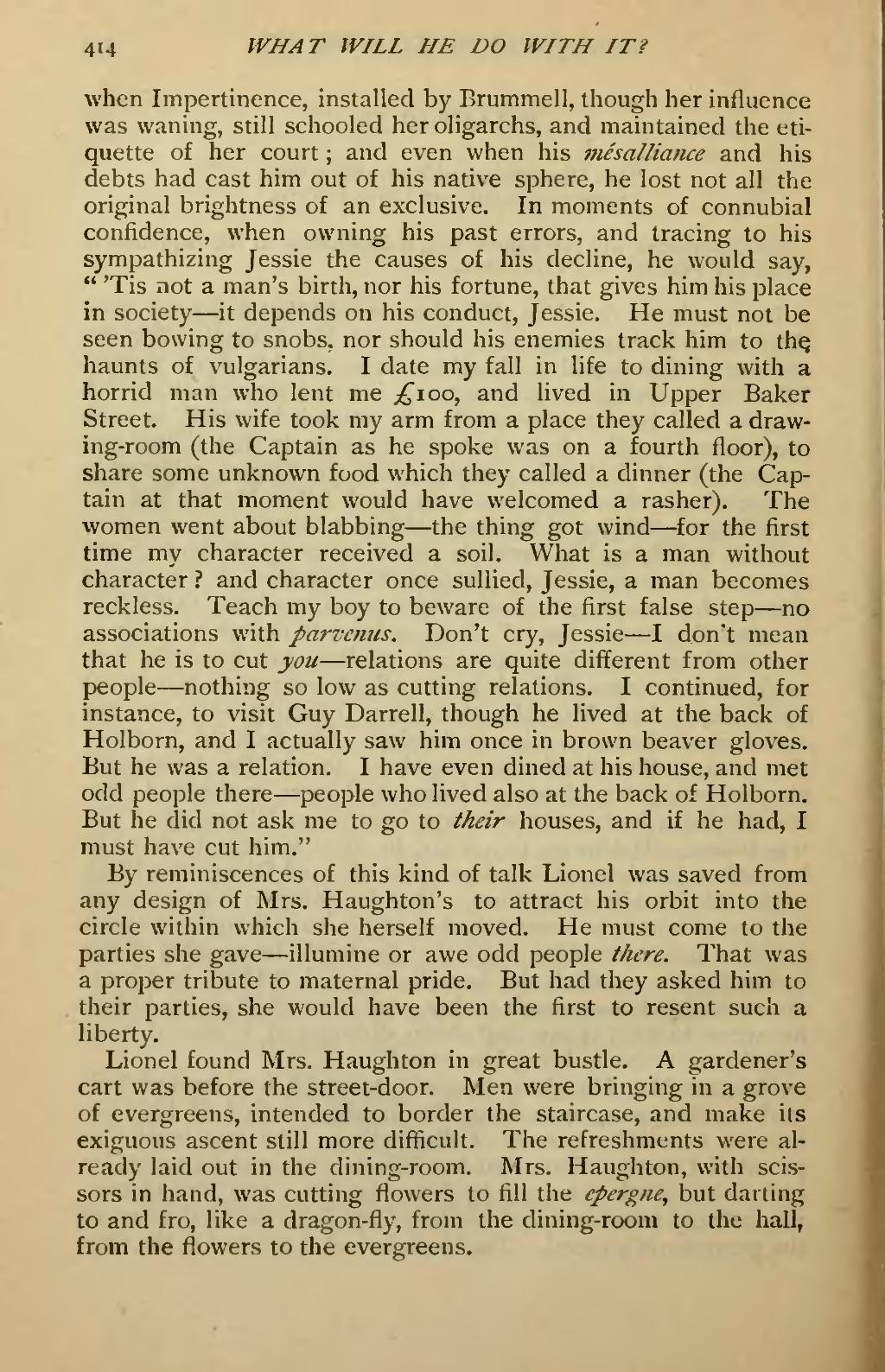when Impertinence, installed by Brummell, though her influence was waning, still schooled her oligarchs, and maintained the eti- quette of her court; and even when his mesalliance and his debts had cast him out of his native sphere, he lost not all the original brightness of an exclusive. In moments of connubial confidence, when owning his past errors, and tracing to his sympathizing Jessie the causes of his decline, he would say, "'Tis not a man's birth, nor his fortune, that gives him his place in society—it depends on his conduct, Jessie. He must not be seen bowing to snobs, nor should his enemies track him to the haunts of vulgarians. I date my fall in life to dining with a horrid man who lent me £100, and lived in Upper Baker Street. His wife took my arm from a place they called a draw- ing-room (the Captain as he spoke was on a fourth floor), to share some unknown food which they called a dinner (the Cap- tain at that moment would have welcomed a rasher). The women went about blabbing—the thing got wind—for the first time my character received a soil. What is a man without character? and character once sullied, Jessie, a man becomes reckless. Teach my boy to beware of the first false step—no associations with parvenus. Don't cry, Jessie—I don't mean that he is to cut you—relations are quite different from other people—nothing so low as cutting relations. I continued, for instance, to visit Guy Darrell, though he lived at the back of Holborn, and I actually saw him once in brown beaver gloves. But he was a relation. I have even dined at his house, and met odd people there—people who lived also at the back of Holborn. But he did not ask me to go to their houses, and if he had, I must have cut him."
By reminiscences of this kind of talk Lionel was saved from any design of Mrs. Haughton's to attract his orbit into the circle within which she herself moved. He must come to the parties she gave—illumine or awe odd people there. That was a proper tribute to maternal pride. But had they asked him to their parties, she would have been the first to resent such a liberty.
Lionel found Mrs. Haughton in great bustle. A gardener's cart was before the street-door. Men were bringing in a grove of evergreens, intended to border the staircase, and make its exiguous ascent still more difficult. The refreshments were al- ready laid out in the dining-room. Mrs. Haughton, with scis- sors in hand, was cutting flowers to fill the epergne, but darting to and fro, like a dragon-fly, from the dining-room to the hall, from the flowers to the evergreens.
